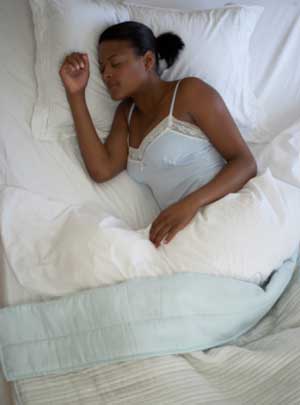General Strategies to Help Yourself
There are a number of things that you can do for yourself to help relieve, or at least ease, symptoms of depressive illnesses. Below, you'll find some general tips and information on some of the most successful strategies in helping yourself manage depression.
Reduce Stress
Stress is common in daily life and may be associated with work, family or personal relationships. Whatever the cause, there are some simple steps which can help to reduce stress:
- Practice breathing exercises.
- Learn and practise relaxation techniques.
- Meditate: Novices may find guided meditations an easy way to begin, but there are a number of forms of meditation to try.
- Exercise: Even short sessions of gentle to moderate exercise can improve your mental health.
Develop (or Maintain) Healthy Sleeping Habits
Difficulty sleeping is a common problem, as depressive illnesses can disturb sleep and disrupt your natural body clock. Sleeplessness and fatigue may lead to irritability, lack of energy and poor concentration. Remember, it's not the total length of sleep that matters, but the quality of deep sleep and dream sleep. Most deep sleep occurs during the first five hours after falling asleep at night. So even if you sleep for only four or five hours, you'll still get about the same amount of deep sleep as someone who sleeps for eight to 10 hours.
Stay Active
Regular, gentle to moderate exercise can relieve mental tension and improve your overall mental health. This can include walking, swimming, yoga, dancing, golf or a low-intensity gym workout, and it should be done most days of the week. If you don't regularly exercise, start out gradually—maybe with a walk around the block—and slowly increase the time and intensity of the exercise as you feel comfortable. Make a plan, and stick with it. And if you find it difficult to exercise regularly, consider exercising with someone else. Not only will you increase your chances of continuing to exercise, but you'll also have some social contact, which may help you feel better as well.
Limit Alcohol and Other Drugs
Many people try to make themselves feel better with alcohol, cigarettes, cannabis and other drugs. Although these substances may provide temporary relief, they may also cause long-term problems. In addition, most illegal drugs and alcohol interfere with the effects of antidepressant drugs. If you have been consuming large amounts of alcohol or drugs, it's important to talk to your doctor, so he or she can help you develop an appropriate treatment plan.
To find more strategies for a particular depressive illness, please click on the topics in the left-hand menu.


